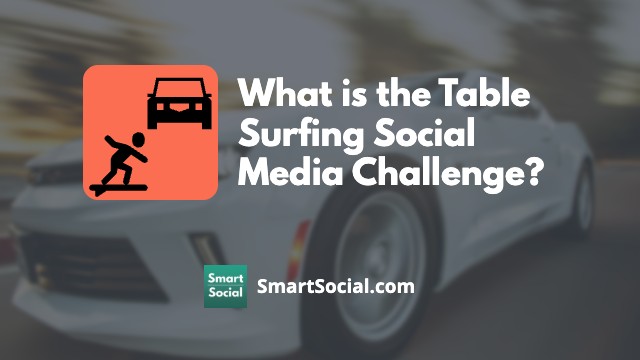5 Keys to Creating a Social Media Contract for Your Child
Green Zone App
(Click here to learn more)
Dangerous Social media challenge
(Click here to learn more)
Red Zone App
(Click here to learn more)
Gray Zone App
(Click here to learn more)
Learn more about smartphone and social media agreements and create a custom agreement with your family with our course Smartphone & Social Media Agreements: What Parents, Educators & Students Need to Know.

Set family expectations for all devices
- Whether it is an iPhone, an iPad, iPod touch, Android devices, or PlayStations, these types of devices are adult devices. They are not set up for kids out of the box so as the parent, we need to set up expectations for the family. Make expectations for devices as clear as possible and write them down, so there is less confusion and tension in the family. It is normal for a child to want to connect with their friends, peers, and social groups. It is normal for your child to say “no.” Remember that it is up to you to not only develop a set of rules but also to model positive adult behavior that follows similar rules as those rules set forth for your children. For example, since one of the rules is not having devices at the table, I am going to model that behavior for my children and also be mindful of when I have my own phone at the table. When my kids are around, I do not check my phone at the table so I can model that behavior for my children.
Guidelines about where & when the device can be used
Think about what you expect and be proactive when creating a social media contract for your family.
- When and where can your child use your device? Are they allowed to use their devices at meal times? What about your children’s friends during sleepovers? What are the expectations? How about at night? Do the children have to power them down or keep them outside of the bedroom at night? Think about what you expect and be proactive when creating a social media contract for your family. Encourage your kids to see this as a collaborative process and get input from your child. You don’t need to take your child’s advice, but you do need to listen to their concerns. Also, ensure that the contract language is casual, clear, and to the point. When your children are behaving appropriately, pay attention to it and attend to those positive behaviors. The more you pay attention to positive behaviors, the more that will reinforce your children to behave in that way.
Encourage your child to stop and think before they post
All passwords should be private in the sense that they should not be shared with friends or acquaintances.
- All passwords should be private in the sense that they should not be shared with friends or acquaintances. However, all passwords should be shared with parents. At what point do you not share the passwords? From my point of view, it shouldn’t matter. You shouldn’t be going on your child’s account to snoop around in later years. You are responsible for your child and so it is only fair that you are able to see what is going on from time to time. A big part of this is encouraging your child to pause and think about what they are saying before they post because they know that you are able to check in on their behavior.
Require permission to download
- You want your child to be able to know that when they want to download a certain app, they need to come to you in order to get that app. If the answer is no, you can tell them why. “This is a ‘no’ because this app is not appropriate” or “This is a ‘yes,’ but only when you are 13 years old.” This is a great way to keep your child safe and help them make good decisions about what they download and when they download certain apps.
Respectful behavior earns more privileges

Date your social media contract and revise it as your children get older.
Date your social media contract and revise it as your children get older. Their needs and interests will evolve as they get older. When you can demonstrate a certain behavior, you get a higher level of privilege, which I call digital access boxes. Respectful behavior, on and offline, earns more privileges over time.
About our guest blogger
Dr. Adam Pletter is a Child Psychologist in the Bethesda, Maryland area.
This post is an excerpt from the 2017 Digital Citizenship Conference in Los Angeles. The conference was a rich environment for educators, law enforcement officers, and parents to openly discuss issues and solutions for helping students shine in the digital world.
Is your family ready to create a smartphone and social media agreements? Start with our course: Smartphone & Social Media Agreements: What Parents, Educators & Students Need to Know
Protect your family and enter for a chance to win cool prizes
Become a member or log in to learn more on this topic
Protect your family and enter for a chance to win cool prizes

., start learning from this page to earn points!*
Hello, I'm Josh, the founder of SmartSocial.com.
Don't leave this page until you fill out our feedback form that will appear after you learn from the resources...
Here are some of the latest resources at SmartSocial.com
Become a Very Informed Parent (VIP) to get our social media suggestions in your email every Tuesday & Thursday.



Hello, I'm Josh, the founder of SmartSocial.com. Protect your family by taking my 1 minute quiz
This quiz will help you understand how safe your family is


Schools & Districts: Partner with us to protect your community online
Our remote presentations (and website) teach over a million parents and students each year how to be safe so they can shine online. We teach students how their accounts can be used to create a portfolio of positive accomplishments that impress colleges and employers.


Join Our Smart Social Podcast
each week on iTunes
With over 500 episodes, Josh Ochs interviews psychologists, therapists, counselors, teachers, and parents while showing you how to navigate social media to someday shine online.
Listen on:



.jpg)
.jpg)


.jpg)


